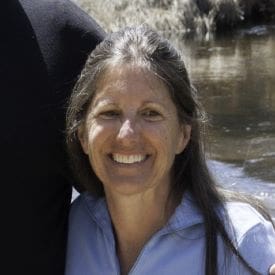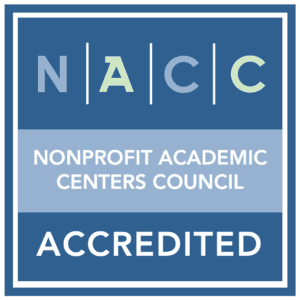Master’s Concentration
Philanthropy, Fundraising, and Resource Development
Changes in philanthropy, resource development, and fundraising are shaping the giving environment that influences how nonprofit and/or nongovernmental organizations plan their funding strategies. From crowdsourcing campaigns to capital fundraising and legacy giving, nonprofits must cultivate and retain donors from diverse contexts, devise new fundraising strategies, and demonstrate impact. Learn to navigate these changing trends through the master’s degree concentration in Philanthropy and Resource Development. You’ll increase impact and your nonprofit’s mission through diverse fundraising approaches.
This program follows the graduate guidelines of the Nonprofit Academic Centers Council (NACC).
Let us help you succeed.
*Indicates a required field.
Top-ranked, career-focused education in a flexible format.
At a Glance
Classes Begin
March 31
Term Length
10 Weeks
Master's Tuition
$835 per credit hour

Top-Ranked University by U.S. News & World Report

Connect with an Advisor
Brian Cicero
Text Me at 303-900-0375
Email Me
Call Me
Schedule an Appointment
Skills You’ll Learn
Assess development approaches while considering scale and mission
Demonstrate financial literacy and employ structured fundraising tools and techniques
Demonstrate cultural competence and understanding of how fundraising strategies may work across diverse global contexts
Curriculum
Master of Science in Nonprofit Leadership with a concentration in Philanthropy and Resource Development requires completion of 48 credit hours (12 courses).
5
Core Courses
4
Concentration
Courses
3
Elective Courses
Featured Instructors
Sample Schedule
Plan out your schedule and determine your preferred timeline for completing your master's degree—finish in as few as 18 months or take up to five years.
Interested in a graduate certificate?
Explore our four and six course graduate certificates in Philanthropy and Resource Development.
Take a Course Before You Apply
We know how important it is to get started when you’re ready and that’s why you can enroll in a course before you officially apply.
Career Outcomes
Predicted outcomes for graduates of Philanthropy and Resource Development
A report done by the Philanthropy Outlook projects charity giving will grow 3.8% over the next year. This increase of funds will help community service agencies to create new positions.
According to the U.S. Bureau of Labor Statistics, employment of fundraisers is expected to grow 16% through 2030, much faster than the average for all occupations.
Technological innovations such as social media have expanded the donor-nonprofit relationship which provides opportunities and challenges for nonprofits.
Job Titles
Development Officer
Director of Development
Fundraiser
Program Manager
Public Relations Managers
Development Events Manager
Fundraiser Salary Salary: National Average
$55,640
(U.S. Bureau of Labor Statistics)
Get Ahead with Career Services
One-on-one career coaching and mock interviews
Job database dedicated to DU students and alumni
Résumé and cover letter guidance
Hear from Our Students
Theme: Job Satisfaction
Nonprofit Fundraising During Tumultuous Times
These times are tumultuous, yet nonprofit organizations still need to move forward to make the world a better place. How are we navigating our organizations and fundraising programs through this time of uncertainty? Let’s come together and discuss how we all can survive and even thrive in these times. In this session, seasoned nonprofit professionals who are Nonprofit Leadership faculty, will address the challenges of creating a fundraising strategy in the age of COVID-19 and practical tips to make your fundraising program work in times of crisis.
Flexible Online Classes
We understand the demands of balancing work, friends and family, and school can be challenging. That's why at University College, you can complete your program entirely online. Our online learning platform makes it easy to work anywhere at any time.
Accreditation
Higher Learning Commission
University College programs maintain the highest level of accreditation offered by The Higher Learning Commission, one of the regional accrediting bodies recognized by the federal government. The University of Denver and all of its academic programs are regionally accredited by this commission, and regional accreditation is the highest standard for universities in the United States.
Colorado Nonprofit Association
The University of Denver's Nonprofit Leadership program through University College is proud to be a sponsor of the Colorado Nonprofit Association, a valued community partnership for more than a decade.
Take the Next Step













